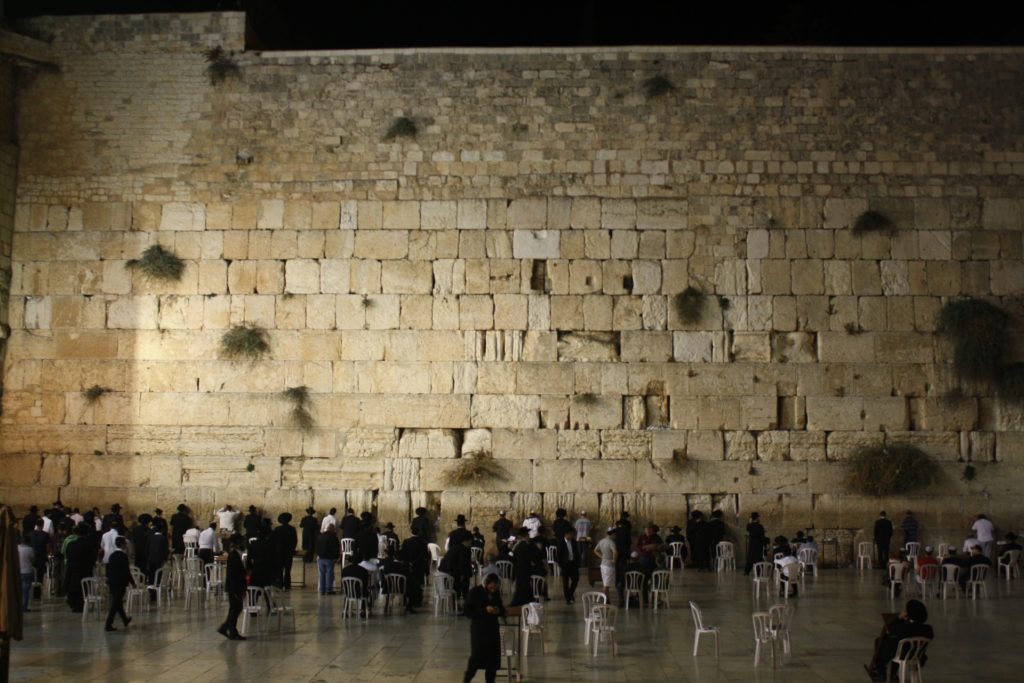
(3-4 Minute Read)
Numbers 19:1 – 22:1
In the Torah portion of Chukkat, the text first begins with the Almighty dictating the guidelines for the red heifer allowing for all future forms of ritual purification. Miriam died, and the community of Israelites were without water. Although the Holy One, Blessed Be He, instructed Moses and Aaron to provide water by speaking to a large rock, they instead struck the rock with Moses’ rod. Water erupted for them all to drink, but the Most High declared that neither Moses nor Aaron would enter the land of Israel due to their disobedience. Prohibited from making war with Edom or Moab, Moses and the Israelites requested permission to pass through their land along the highway. But both nations refused, and the Israelites had no choice but to go around their territory. Aaron also died, and his son Eleazar replaced him as the kohen hagadol, or chief priest. The Canaanite king of Arad engaged the Israelites in battle, but was ultimately defeated. After complaining against the Almighty and Moses, fiery serpents harassed the people of Israel. Sihon, the king of the Amorites, as well as Og, the king of Bashan, both attacked the Israelites. But they were defeated, and the early Jewish nation acquired their territory, much of which was located in the modern-day Golan Heights.
One of the most debated and even puzzling aspects of the entire Torah is the account of Moses striking the rock instead of speaking to it. The consequences from the Almighty seem particularly severe. After forty years of leading a people in the wilderness who were notoriously difficult and even rebellious, Moses and Aaron had been commanded to speak to the rock to bring forth water. Instead, in a rage Moses struck the rock twice. The rock issued forth water for the people of Israel to drink, but the Most High was incensed. He declared that since Moses and Aaron did not have the proper emunah and align themselves with His will, therefore both Moses and Aaron would die in the wilderness and never enter the promised land of Israel.
But why is this punishment seemingly so harsh? After all, Moses and Aaron ultimately suffered a similar fate as the rebellious Jewish people who drive Moses to wrath in the first place! How is this a fair punishment? Shouldn’t Moses and Aaron be given at least a little more grace than the most rebellious elements of the early Israelite nation?

The Chachamim, rabbinical sages of blessed memory, pondered these questions at length. And while isn’t really a firm consensus, many fascinating ideas have been presented.
One aspect that is presented by more Kabbalistically-inclined rabbis is that striking the rock versus speaking to the rock relates to the attributes of chesed and din, or merciful loving-kindness and just judgment. Speaking to the rock related to the spiritual powers of kindness and creation, much as the Most High “spoke” the entire universe into being at the beginning of Bereishit / Genesis. In contrast, the act of striking represents punishment and judgment, and is therefore related to din or justice. Therefore, what the Almighty was really commanding Moses and Aaron was to provide for the nourishment of the people through chesed, merciful loving-kindness. However, after forty years of frustration, Moses and Aaron were enraged and refused. Instead, they chose the conduit of din or harsh judgment and justice. The idea here is that the Almighty was willing to be gracious and merciful to the early Jewish people not because they deserved it, but because they needed it. Moses and Aaron, however, presumably understanding spiritual dynamics and the nature of the Most High and how He operates far better than we can comprehend, vindictively refused. Rather, they took matters into their own hands and instead utilized the spiritual attributes of din, justice.
This theory might receive some additional substantiation with the previous account of Moses striking the rock. Immediately after their departure from Egypt, the Jewish people were rebellious and problematic at Meribah and Maasah as recorded in Shemot / Exodus 17. In response the Most High commanded Moses to strike the rock (rather than speak to it) relating to their poor behavior. Immediately thereafter, Amalek attacked the Israelites and dealt them a severe blow. In other words, it seems as though Moses struck the rock and din through the cruelty of Amalek followed.
Now, forty years later at the same location of Meribah, Moses and Aaron were completely fed up with the Jewish people, and they (theoretically) knew that striking the rock to bring forth water resulted in the judgment of din, such as an attack by Amalek. Rather than speak to the rock, which would have provided for the people of Israel through the conduit of chesed, merciful loving-kindness, Moses and Aaron instead refused. They disobediently struck the rock through din instead, thereby attempting to bring judgment rather than mercy upon the Jewish people.
Some of the chachamim have also related the incident to the building and destruction of the Beit HaMikdash, or Holy Temple. While the ideas amongst the rabbinical sages vary broadly, some have suggested that the striking of the rock twice did parallel the Most High’s judgment and din later during the destruction of both Temples. Just as Moses struck the rock twice, so the Beit HaMikdash made of rock and stone was struck and destroyed twice — first by the Babylonians, and later by the Romans.
In this context, we can further develop the theory as to why the Almighty refused to grant Moses and Aaron entry into the land of Israel. Disobediently, Moses and Aaron had made themselves conduits of the Eternal One’s din of judgment rather than His chesed of merciful loving-kindness. It was bad enough that the Beit HaMikdash would be destroyed twice due to Jewish people’s future sinfulness; but it was imperative that the land of Israel remain intact and in a state of chesed. Thus, since Moses and Aaron had rebellious chosen to be conduits of the Most High’s judgment rather than mercy, they could not “contaminate” the land of Israel with the din of judgment. Accordingly, although the two Temples were destroyed and the Jewish people were massacred and exiled, the land of Israel itself was relatively unharmed despite the Babylonian and Roman conquests. In fact, the Tanakh notes that the Almighty told Jeremiah the Prophet in Devarei HaYamim Bet / II Chronicles 36:20-21 that the land of Israel actually benefitted from the Babylonian conquest and exile in that it could finally rest in compensation for the sabbatical and Jubilee years that had never been kept properly.
May the Holy One, Blessed Be He, empower us to be conduits of chesed rather than din as much as possible. And may we ever seek to connect with the Holy One, Blessed Be He, and observe His Torah, so that we may receive His merciful loving-kindness rather than His harsh judgment and ultimately reach our highest potentials living in the land of Israel.


